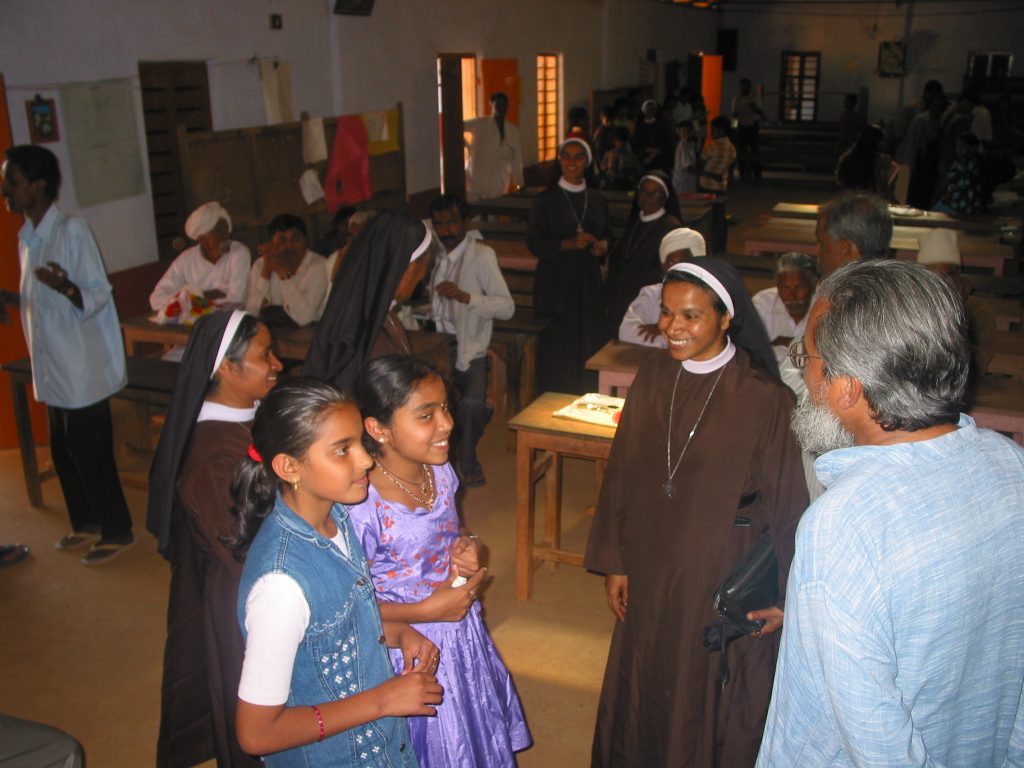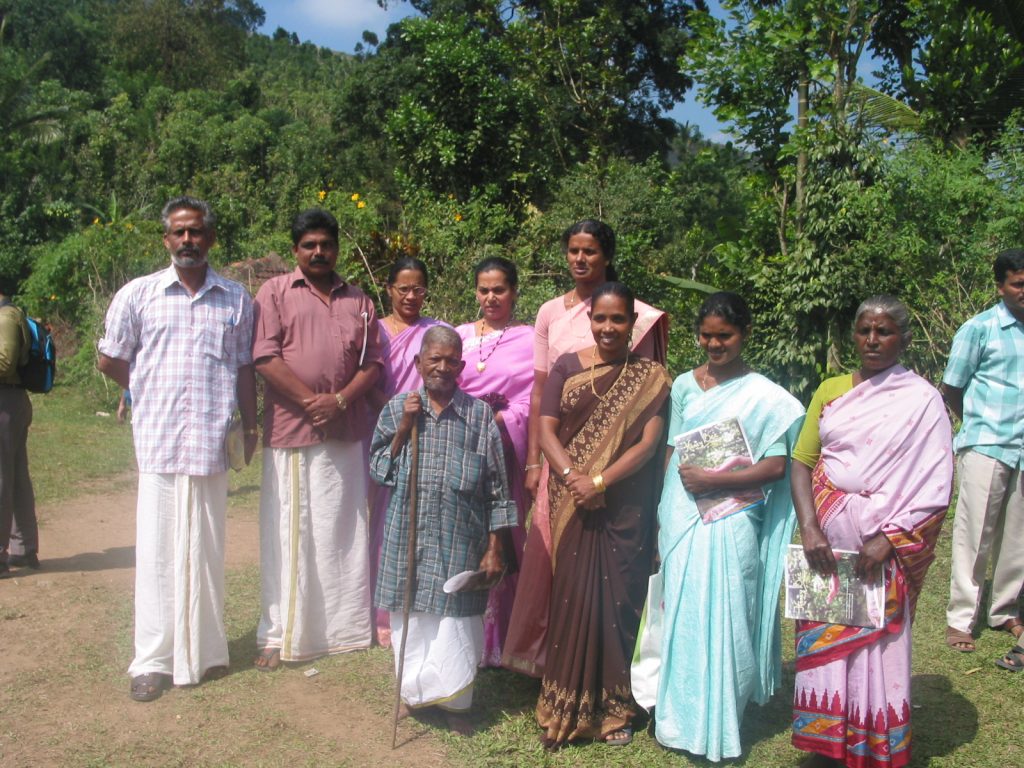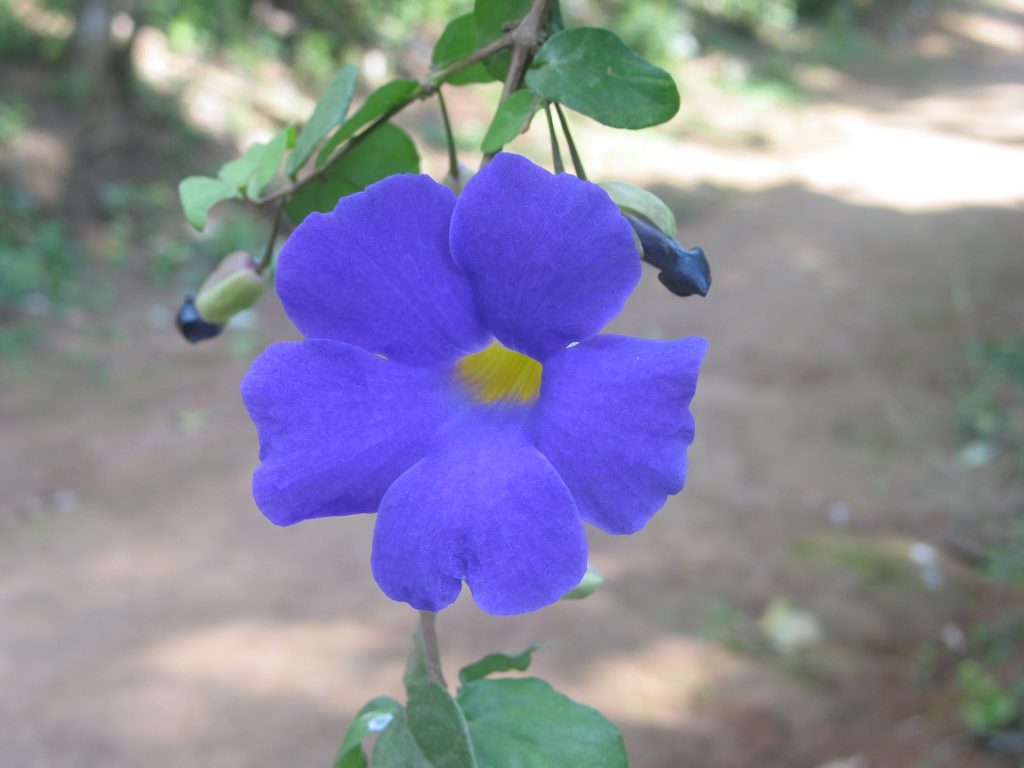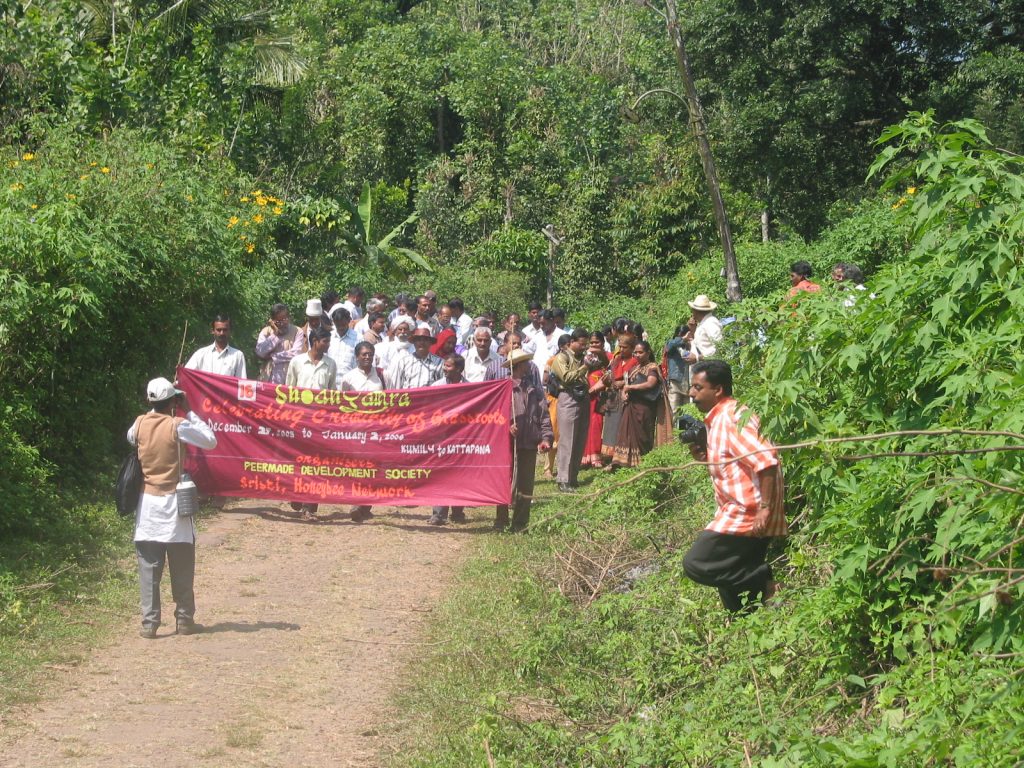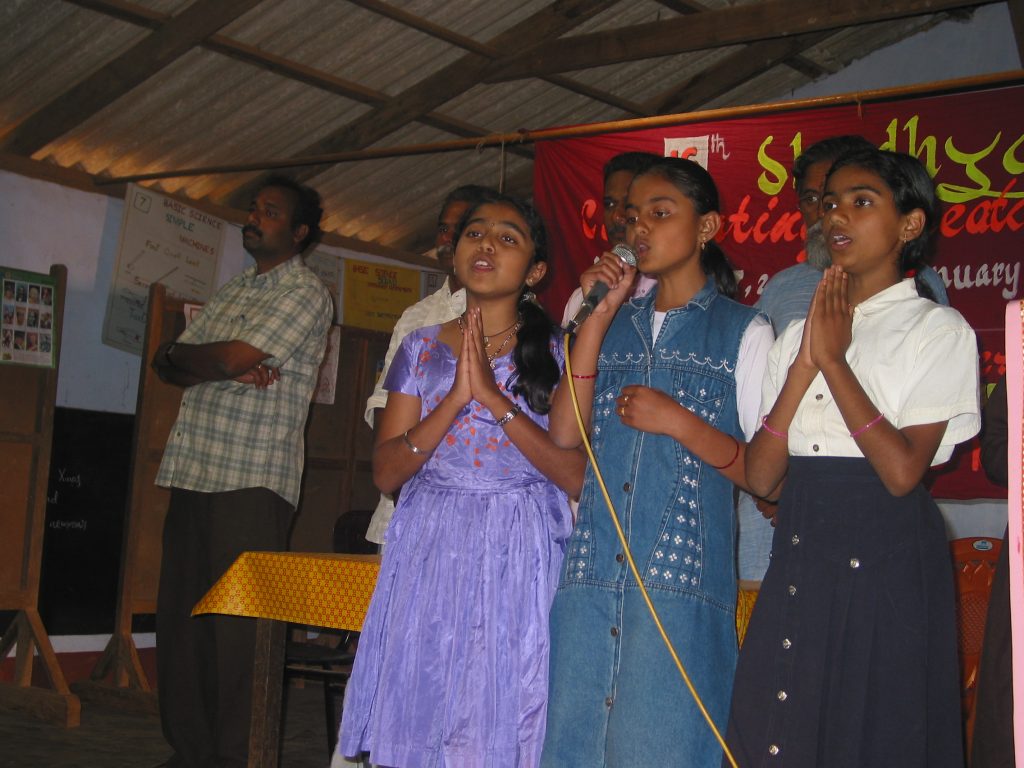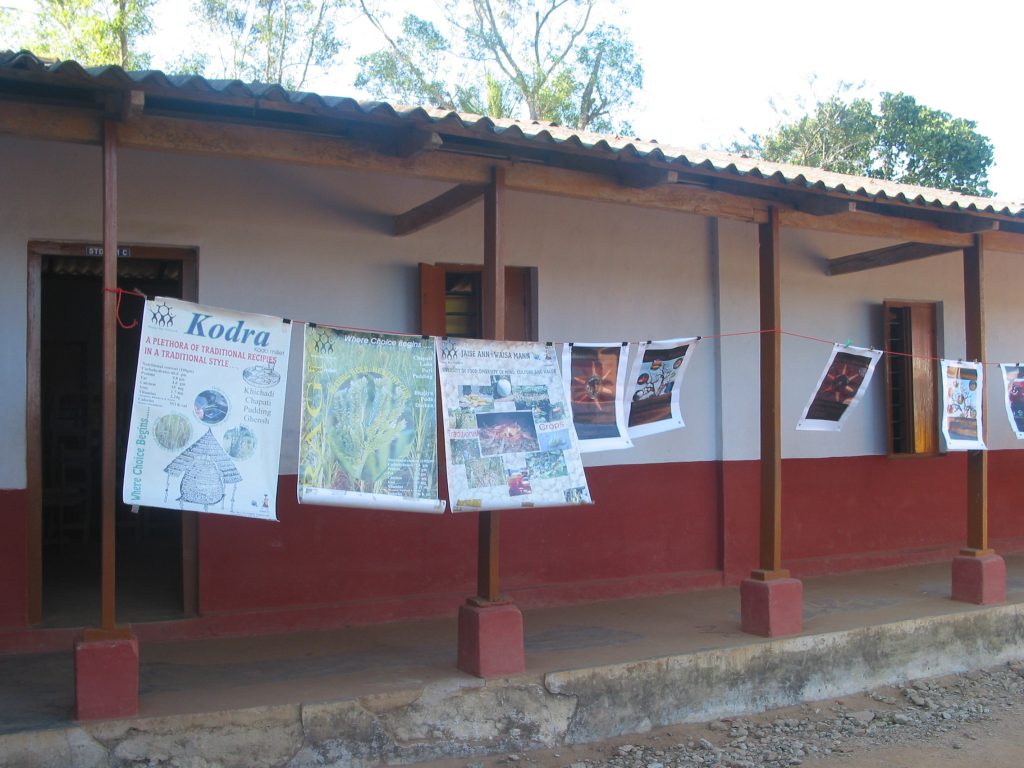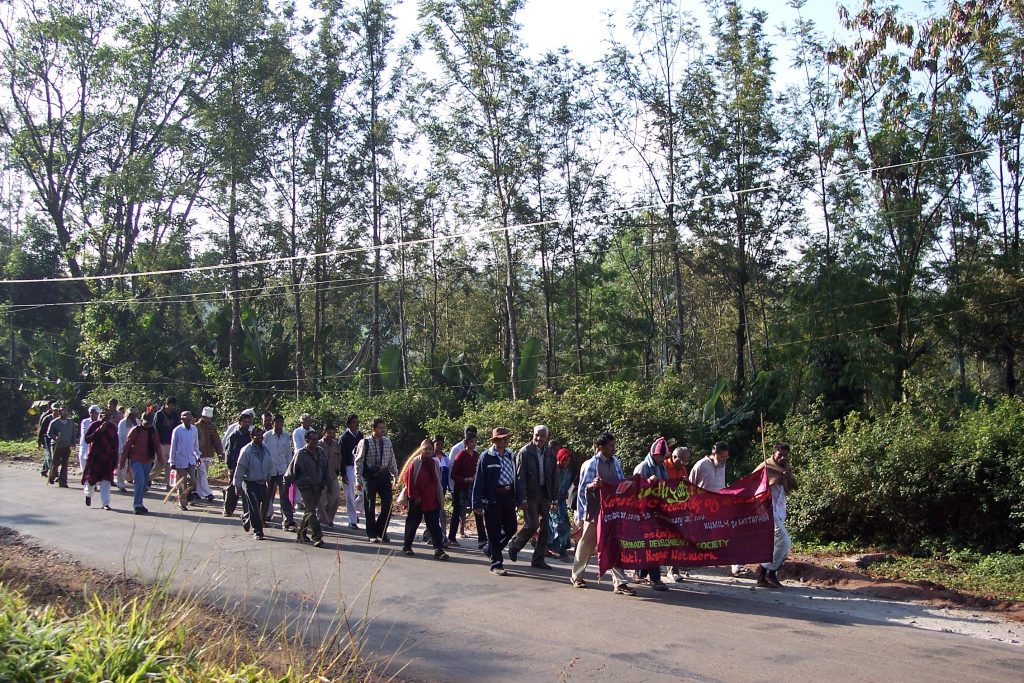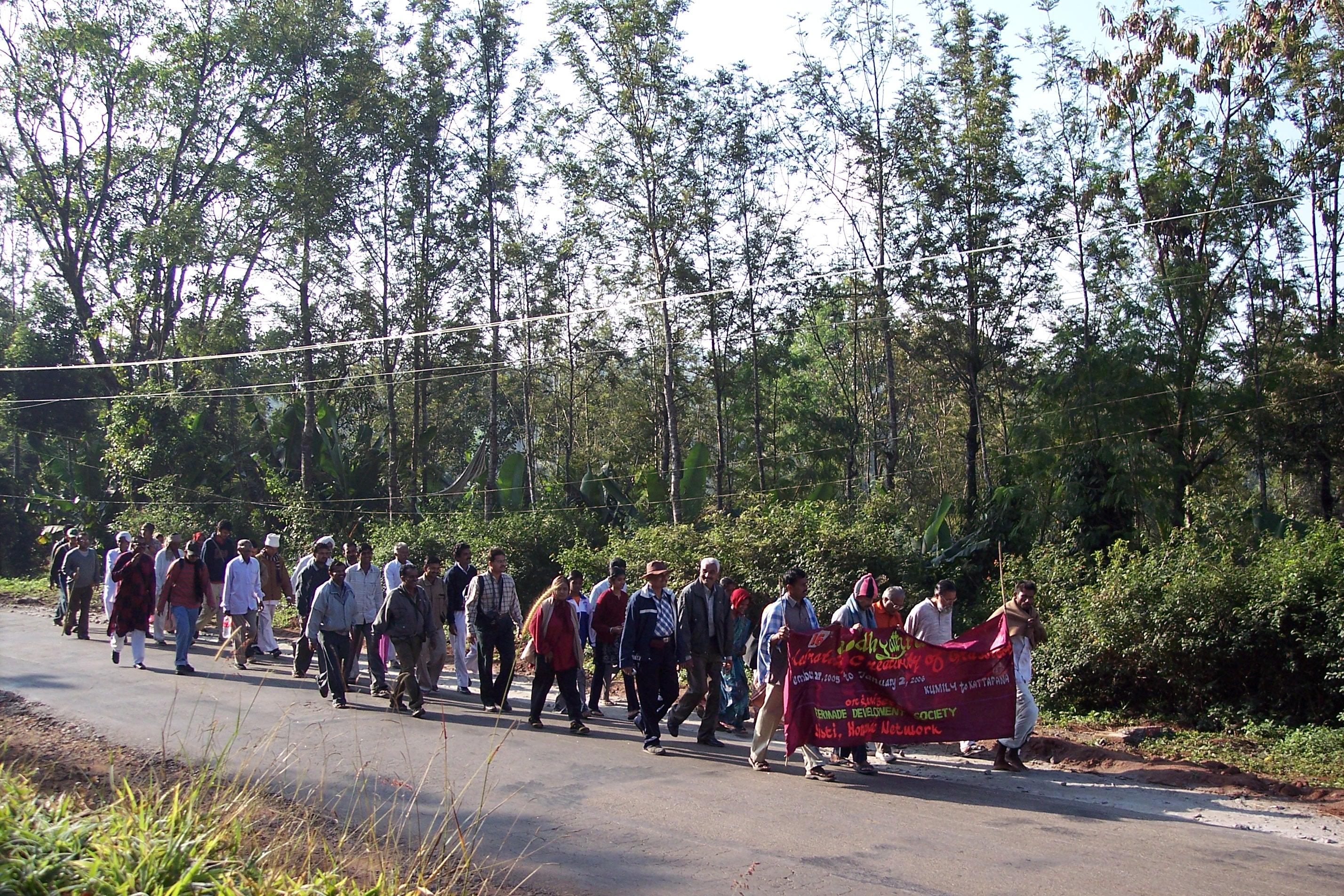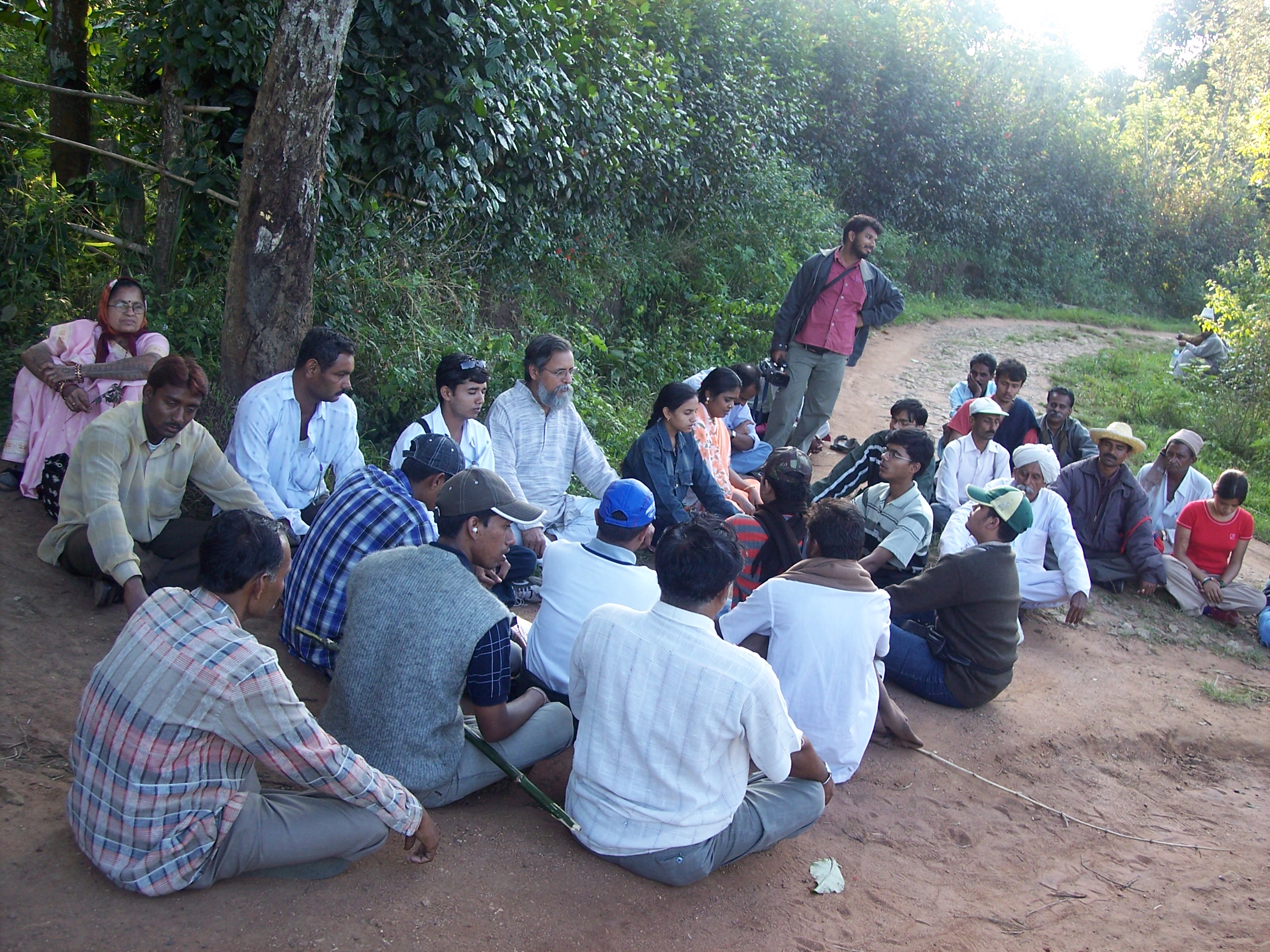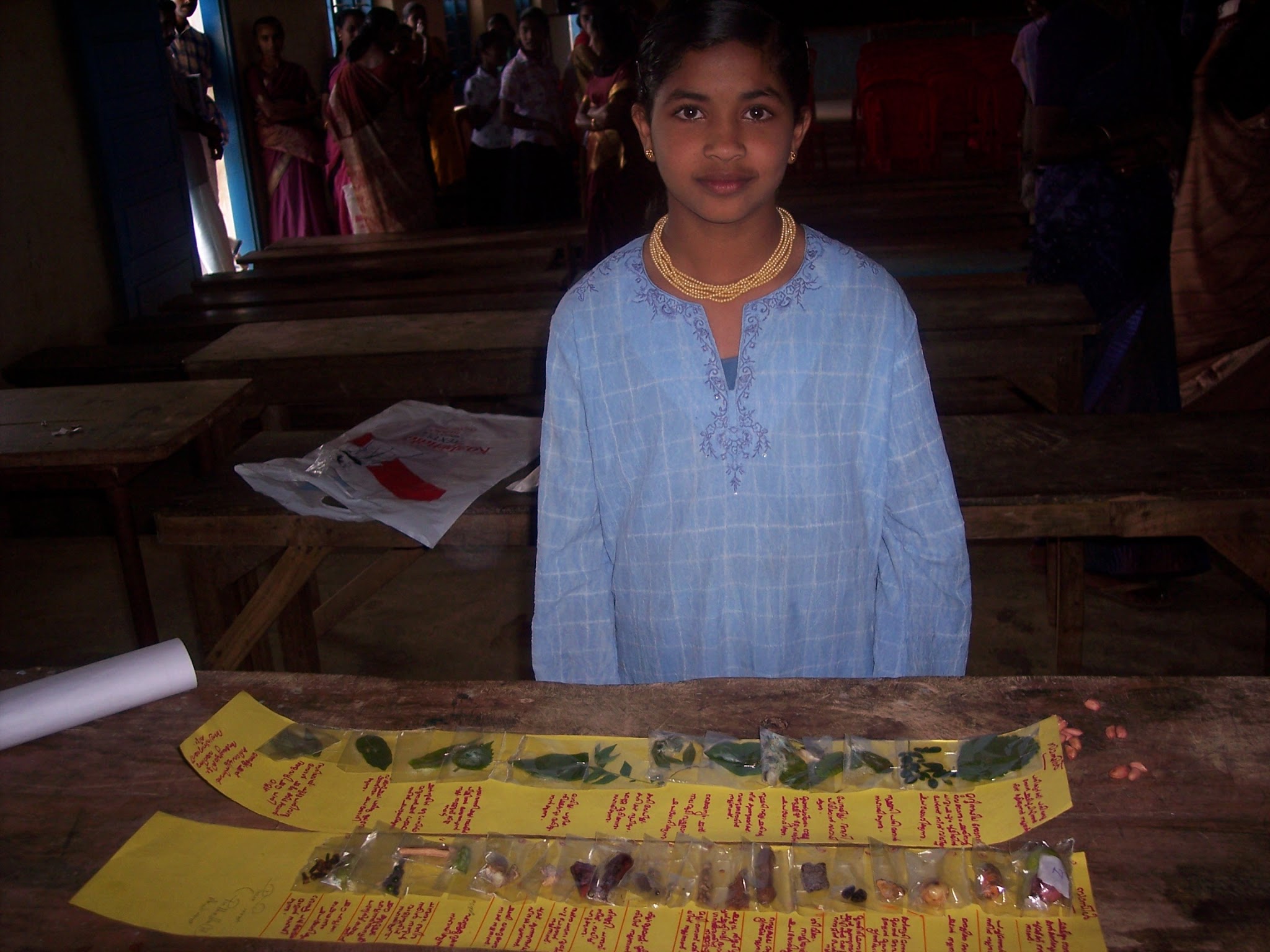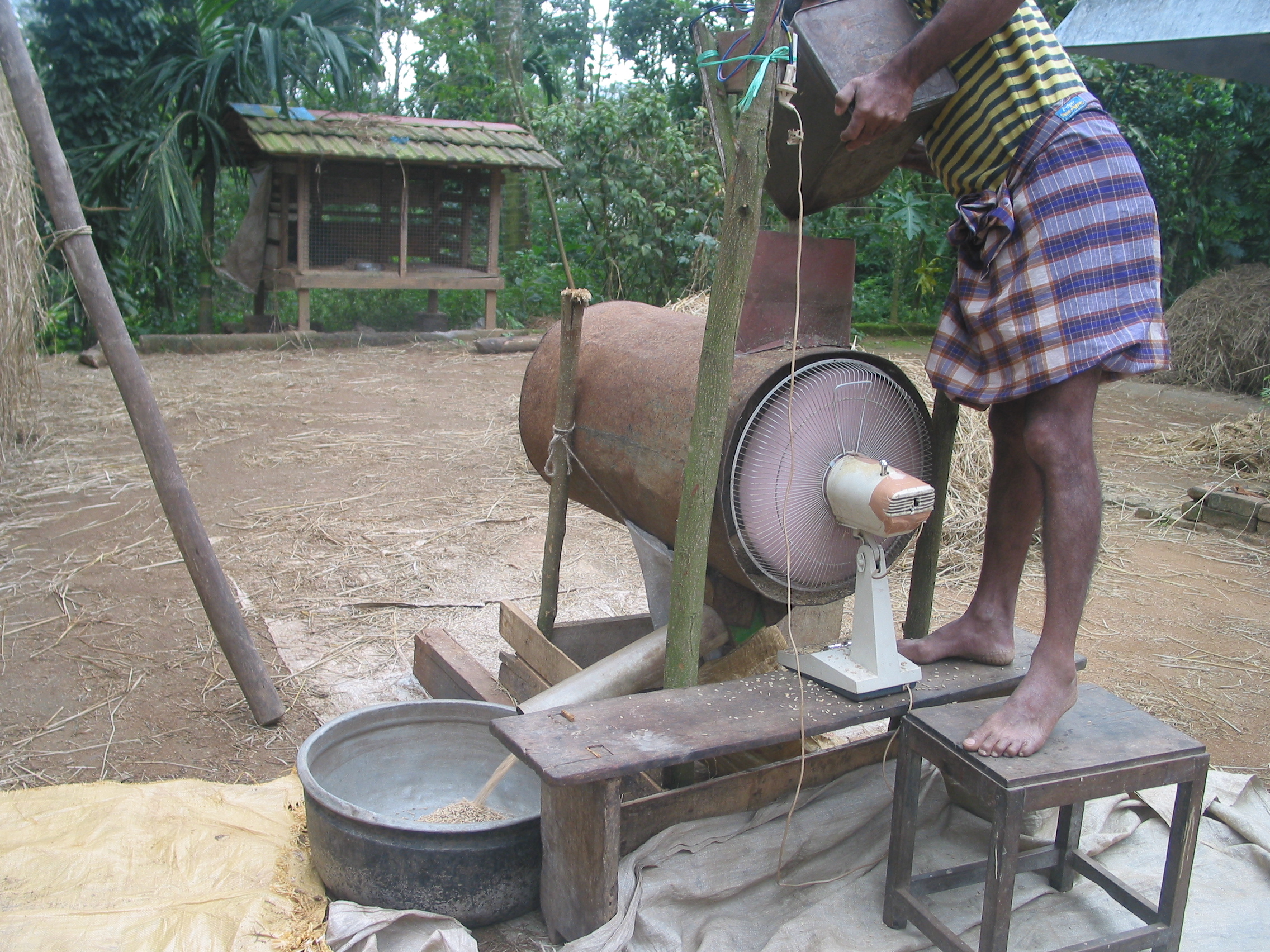Get Next Shodhyatra Update:
Phone:
079-27913293, 27912792
Email:
shodhyatra@sristi.org
16TH EDDUKI TO KATTAPANA (KERALA)
(27th December 2005 to 2nd January 2006)
SRISTI in association with Honey Bee Network, National Innovation Foundation – Ahmedabad, Indian Institute of Management – Ahmedabad (IIM-A) and Peermade Development Society, Idduki – Kerala, undertook the 16th Shodh Yatra from 27th December 2005 to 2nd January 2006 in Idukki Ranges of Kerela, from Kumuly to Kattappana.
A Collective walk through the rainforests to learn from the creative communities and grassroot innovators started from Kumily to Kattapana in Idduki district, Kerala.
The yatra spread over an area of 100 kilometers, walking around 12 to 15 kilometers per day and covering 10 to 12 villages over a period of 8 days. 80 yatris comprising of farmers, women groups, students and scientific communities from all over India viz., Kerala, Tamil Nadu, Karnataka, Maharashtra, Gujarat, Rajasthan, Delhi, West Bengal, Meghalaya and Uttaranchal participated in the Shodh Yatra.
SHODHYATRIS WALKS
The Shodh Yatra was inaugurated by Mr.P.Vivekanandan, founder of “Sustainable Agricultural & Environmental Voluntary Action” (SEVA), of Madurai – Tamil Nadu.
Volunteers trekked in the jungles and plantations, breathing refreshing air heavy with the healing aroma of blackpepper, cardamom, ginger, cinnamon, nutmeg etc. They had intimate interaction with grassroots planters, school children and innovators during the day and stayed in clean, well maintained village school buildings at night. There were village-square presentations every evening. Over a dozen innovators were scouted during such presentations and some of them were instantly honored.
The spices of Kerela – “God’s Own Country” had been literally worth their weight in gold in the European markets in times gone by. Like the famous” silk route” to China, the “Spice Route” had brought India in touch with Western Markets since centuries. Unfortunately, indiscriminate destruction of jungles to create virtually monoculture plantations has taken its toll in recent past. The rich rain forests have suffered from severe ecological damage resulting from monsoon failure for several years. Also pests resistant to standard levels of pesticide residues have led to wholesale rejection of contaminated Indian produce and drastic price crash. However it was heartening to note a deep awareness among the entire cross section of people of the damage suffered. Enlightened planters themselves have taken the initiative for sustainable exploitation of the delicate ecological balance. Even the children and women have become highly concerned about environment and the rich heritage of flora.
Honey Bee Network’s multimedia presentation specific to innovators from Kerala was presented to Farmers and Grassroots innovators from the state of Kerala, who in turn displayed their samples and models. Power point presentation was very instrumental in making people understand our purpose. It was after this, that many innovators reached us by themselves.
A mobile exhibition was displayed in the villages by grassroots innovators and traditional knowledge holders. Newsletters of Honey Bee Network in Malayalam (Ini Karshakan Samsarikkatte) and English (Honey Bee) along with the publications related to bio-herbal preparations were distributed to grassroots innovators and traditional knowledge holders.
As a special feature, street meetings were conducted to explain about Shodh Yatra and 20 innovators were scouted through this.
Recipe contests were conducted to encourage and sustain the importance of unique and healthy traditional cooking practices and to revive the cultural heritage. Women groups prepared traditional food during the entire journey and added flavor to the yatra. Women innovators and traditional knowledge holders were honored at their doorsteps during this yatra. Women self-help groups were found adding that little extra which is the strength of Indian soil. These women folks had various traditional knowledge treatments and medicines applicable over a number of ailments.
Three-biodiversity contests were conducted for school children to emphasize and instill the importance of biodiversity and traditional knowledge practices in the young children. Students collected as many as 250 samples of plant varieties, which they could identify and of which they were already aware of specific healing properties. Uses of the plant varieties were also explained. The response from children and women groups was overwhelming. Even the children were highly concerned about environment and the rich heritage of flora.
The process of preparation of traditional herbal medicines was demonstrated to womenfolk. Traditional process of preparation of Murivenna for treatment of cuts, wounds and swellings; Uragullika for treatment of stomach disorder; Thaleespathradi Choornam for cough and throat infection were exhibited by traditional knowledge holders. It was a noteworthy fact that Sarasamma, a tribal woman helps the community in preserving biodiversity and ethno-traditional medicines and adopts traditional agricultural practices.
It was observed that usage of bio-pesticides were encouraged to avoid chemical pollution, to protect environmental safety and to reduce the cost of producing farm products.
Considering the social & environmental harm caused by the chemical pesticides the farmers prefer the usage of bio-pesticides to a large extent. Unfortunately the slump in prices of pepper and cardamom had created losses and economic crisis to farmers.
Other outstanding grassroots innovators and traditional knowledge practitioners were also felicitated during the Shodh Yatra.
Around 60 innovators and traditional knowledge holders were honoured and Padmashri Prof. Anil. K. Gupta gave away certificates to innovators on this occasion.
The Shodh Yatra concluded on 2nd January 2006 at 12:30 pm. The important challenge of Shodh Yatra was documenting traditional knowledge and grassroots innovations, identify opportunities, pool best practices and new products to explore new market opportunities.
The Honey Bee Network has been conducting Shodhyatras in various parts of the country for last eight years. It had covered more than 2700 kms so far in sixteen yatras. Our candid assessment brought about the fact that undoubtedly Shodhyatra has turned out to be one of the major movements across the country that has taken the spirit of innovation to the doorstep of the common man. However, there have been deficiencies; but the fact that the event was instrumental in gaining recognition to the women in the remote tribal hamlets, inspiring a sagging herbal practitioner to take up his practice enthusiastically, encouraging a farmer to think of initiating localized and locally managed Shodhyatra to unleash the creative potential of the villagers are no mean tasks. Though the yatra is fraught with challenges, the charm of it can only be experienced by him, who has either walked it physically or spiritually.
FLICKR GALLERY
